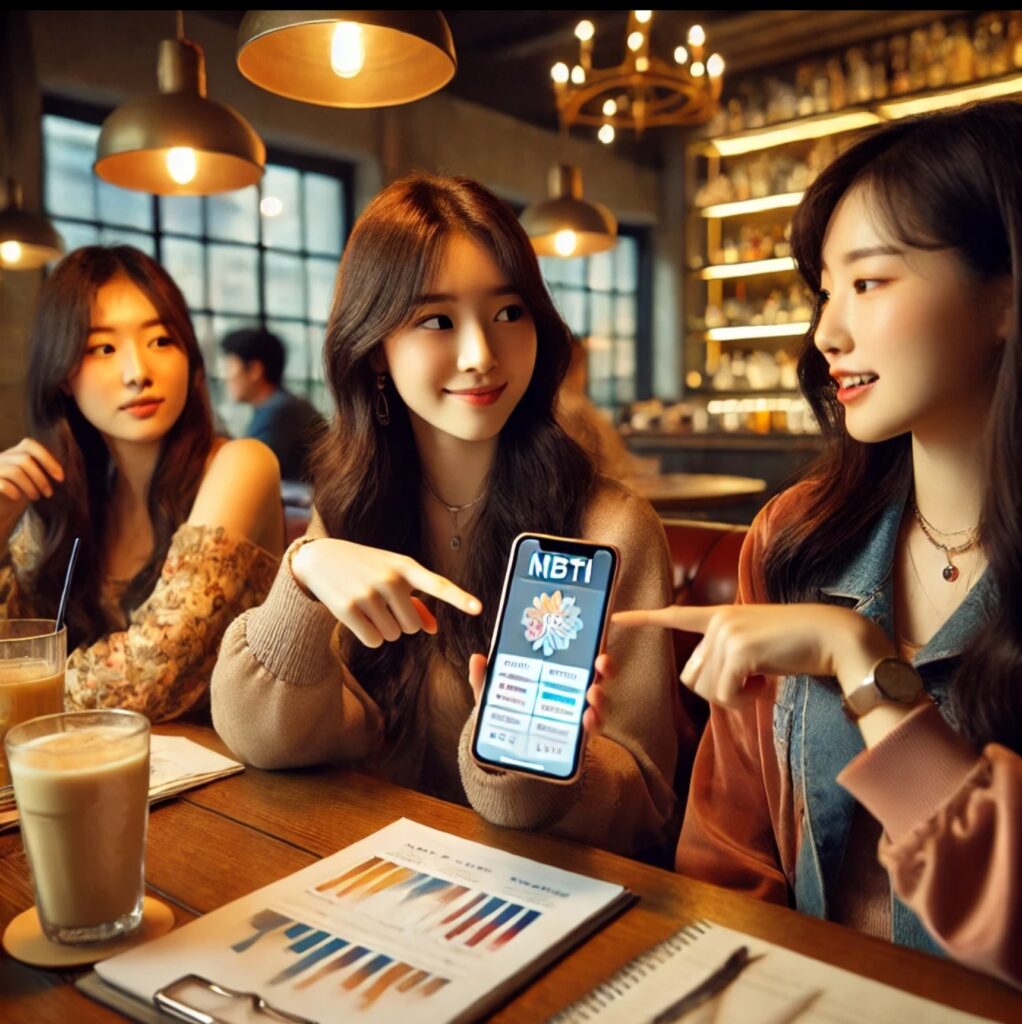Are you interested in Korean women, want to date a Korean woman, or simply curious about what influences their social interactions? If so, you might have come across the MBTI (Myers-Briggs Type Indicator) personality test, which has become a major trend in South Korea. While MBTI is popular worldwide, Korean women take it more seriously than most, using it as a tool for self-understanding, friendships, and even romantic compatibility. But why does MBTI hold such weight in South Korean culture, particularly among women? Let’s dive into the reasons.
MBTI as a Social Icebreaker
In South Korea, where social harmony is highly valued, MBTI has become a convenient way to start conversations and quickly understand someone’s personality. Whether on a first date, at a café with friends, or during a job interview, discussing MBTI types is a common practice. Korean women often use it to determine compatibility in friendships and relationships, making it an essential part of modern social life.
Personality and Dating: Finding the ‘Perfect Match’
If you’re planning to date a Korean woman, don’t be surprised if she asks about your MBTI type early on. Many women believe that MBTI provides insight into how well two people will get along. Some MBTI types are considered naturally compatible, while others are seen as challenging matches. Dating apps in Korea even allow users to filter potential matches based on MBTI type, making personality typing a major factor in romance.
MBTI and South Korea’s Work Culture
South Korea has a fast-paced, high-pressure work environment where teamwork and adaptability are essential. Many companies use MBTI for team-building exercises and recruitment, reinforcing its credibility. Korean women often take MBTI seriously as a way to understand their strengths, choose career paths, and improve their working relationships.
The Role of K-Pop and Social Media
K-pop idols and influencers frequently share their MBTI types, sparking discussions among fans and making personality typing even more mainstream. When a celebrity reveals their type, fans often analyze their behavior and compare it to their own, further deepening the cultural obsession with MBTI.
Self-Discovery and Emotional Validation
In a society where traditional expectations can be strict, MBTI offers a way for women to express and validate their unique traits. Whether they identify as an outgoing ENFP or a reserved ISTJ, MBTI gives them a sense of self-understanding and belonging in a structured cultural landscape.
MBTI: More Than Just a Trend
While some may see MBTI as just a fun personality test, it has become deeply embedded in South Korean culture, influencing various aspects of daily life. Unlike in many other countries where personality tests are treated as casual entertainment, MBTI in South Korea is viewed as a meaningful framework for understanding oneself and others. For Korean women, it’s more than just a passing interest—it plays a role in self-discovery, dating, friendships, and even career decisions.
One of the reasons MBTI holds such weight is its ability to provide a structured way of making sense of human behavior. In a society where social harmony is highly valued, understanding personality differences helps people navigate relationships more effectively. Korean women, in particular, use MBTI as a tool to evaluate romantic compatibility, strengthen friendships, and build better connections in professional environments. By knowing their MBTI type, they gain insights into their strengths and weaknesses, which can help them grow personally and professionally.
In the dating world, MBTI has become a major factor in determining compatibility. Many women prefer partners with certain personality traits that align with their own values and communication styles. Online dating profiles frequently display MBTI types, and discussions about ideal type pairings are common. While MBTI isn’t a foolproof method for finding the perfect match, it gives people a starting point for understanding how different personalities interact. If you’re interested in dating a Korean woman, being aware of your MBTI type and how it aligns with hers might give you an edge in making a strong first impression.
Beyond relationships, MBTI also plays a role in career and workplace dynamics. Many Korean companies incorporate MBTI into team-building activities, helping employees understand how to work more efficiently together. Women often use their MBTI results to assess which careers or work environments suit their natural tendencies, making it a valuable tool for long-term personal and professional growth.
Ultimately, MBTI is more than just a trend—it has become a widely accepted way of understanding human interaction in South Korea. Whether you’re looking to connect with Korean women socially, romantically, or professionally, familiarizing yourself with MBTI can help you navigate these interactions with greater awareness and confidence. While it’s important to remember that no personality test can fully define a person, MBTI offers valuable insights that can enhance your relationships and deepen your understanding of Korean culture.

